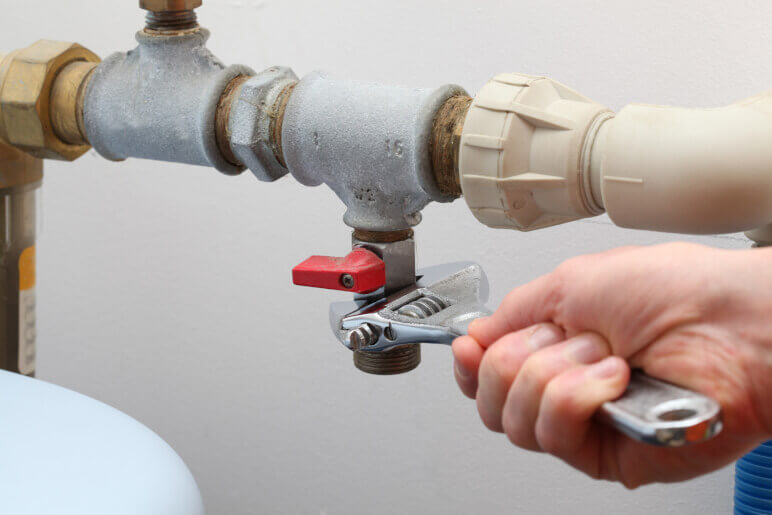Must-Know Bathroom Plumbing Guidelines for New Homeowners
Must-Know Bathroom Plumbing Guidelines for New Homeowners
Blog Article
In this article down the page you can locate a lot of good information all about 11 Must-Read Tips for Plumbing a New House.

For new home owners, understanding and preserving bathroom pipes can save both time and money by preventing expensive issues down the line. Below are some vital restroom plumbing ideas to aid you maintain whatever running smoothly.
Familiarize Yourself with the Main Shut-Off Shutoff
Knowing where the main water shut-off valve is located in your house is essential. This enables you to promptly switch off the water supply in case of major leaks or throughout pipes emergencies, protecting against comprehensive water damage.
Consistently Examine for Leaks
Small leaks can result in big troubles. Consistently check under sinks, around toilets, and near pipes components for any kind of indicators of leaks. Search for moisture, small drips, or rust. Catching and fixing leaks early can prevent extra major damage and save water.
Don't Neglect Slow Drains Pipes
If your sink or bathtub is draining pipes gradually, it's usually an indicator of a blockage developing. Resolving this early can stop a total obstruction. Make use of a bettor or a plumbing professional's snake to clear out particles. Avoid making use of chemical drainpipe cleaners as they can harm your pipes over time.
Know What Not to Flush
Commodes are not waste disposal unit. Avoid flushing anything besides toilet paper and human waste. Items like wipes, feminine hygiene items, and cotton swabs ought to be taken care of in the trash to prevent clogs and drain back-ups.
Install Strainers in Drains
Place filters in your sink and bath tub drains pipes to capture hair and other particles before they enter your plumbing system. Cleansing the strainers frequently will aid avoid build-up and keep water streaming openly.
Keep Your Water Heater
Ensure your hot water heater is readied to an appropriate temperature level (normally about 120 levels Fahrenheit) to prevent hot and lower power use. Flush the container each year to eliminate debris accumulation, which can lower the efficiency and life expectancy of your heating unit.
Upgrade Your Fixtures
If your home has older fixtures, take into consideration updating to much more efficient versions. Modern bathrooms, showerheads, and faucets are designed to make use of less water while supplying great pressure, which can considerably minimize your water bill and ecological impact.
Beware with DIY Plumbing Fixes
While it's tempting to manage all home fixings on your own, beware with plumbing. Some concerns could require professional know-how, specifically if they entail primary water lines or sewage system repair services. Working with a professional can occasionally be more cost-effective than DIY, particularly if it stops more damages.
Get Ready For Cold Weather
Secure your pipelines from cold during winter by protecting pipes in unheated locations like basements, attic rooms, and garages. During extreme cold, let cold water drip from faucets offered by revealed pipes to aid stop cold.
Set Up Routine Maintenance
Consider organizing yearly inspections with a qualified plumber. They can identify issues that you could miss, such as hidden leaks or deterioration on pipes and components. Regular maintenance aids extend the life of your pipes system and can protect against emergencies.
Conclusion
Understanding and maintaining your home's shower room plumbing can protect against many usual issues. By adhering to these essential tips, you can guarantee your restroom remains practical and effective, saving you money and time in the future.
Essential Plumbing Tips for Homeowners: Keep Your Pipes Flowing Smoothly
As a homeowner, understanding the basics of your plumbing system can save you time, money, and a lot of headaches. Plumbing issues can range from minor annoyances like dripping faucets to major problems like burst pipes that cause significant damage. This guide provides essential tips to help you maintain your plumbing system and tackle common issues.
Understanding Your Plumbing System
Supply System: Brings fresh water into your home from a municipal source or a well. Drain-Waste-Vent System: Removes wastewater and vents sewer gases outside. Fixtures and Appliances: Includes sinks, toilets, showers, dishwashers, and washing machines. Basic Maintenance Tips
Regular Inspections: Periodically check for leaks, corrosion, and other signs of wear and tear. Look under sinks, around toilets, and near water heaters. Know Your Main Shut-Off Valve: In case of a major leak, you’ll need to shut off the water quickly. Ensure everyone in your household knows where the main shut-off valve is located. Prevent Frozen Pipes: In cold climates, insulate exposed pipes and let faucets drip during extreme cold to prevent freezing. Use Strainers: Install strainers in sinks and tubs to catch hair, food particles, and other debris that can cause clogs. Common Plumbing Issues and Solutions
Clogged Drains:
Prevention: Avoid pouring grease down the drain and use drain screens to catch debris. DIY Fix: Use a plunger or a plumbing snake to clear minor clogs. For stubborn clogs, a mixture of baking soda and vinegar can sometimes help. Leaky Faucets:
Prevention: Replace washers and seals regularly. DIY Fix: Turn off the water supply, disassemble the faucet, and replace worn parts.

Book An Appointment Report this page